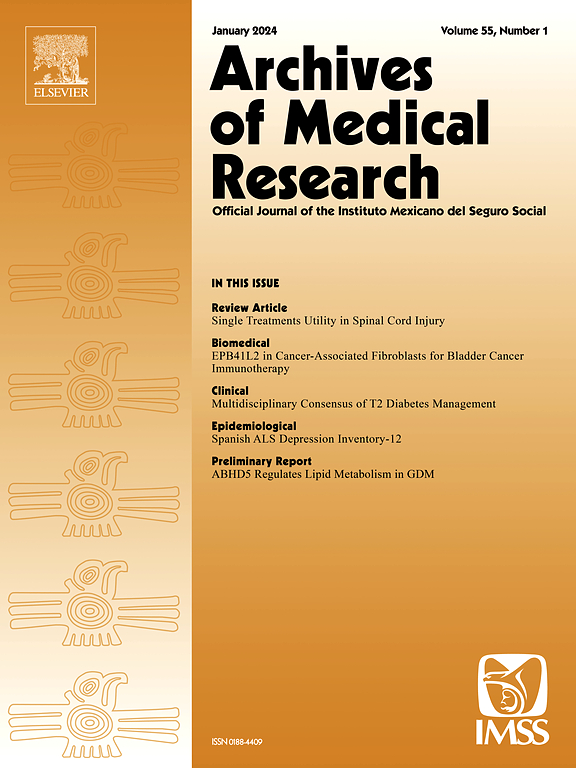求助PDF
{"title":"Evaluation of TALK© training for interprofessional clinical debriefing in Latin America","authors":"Cristina Diaz-Navarro , Soledad Armijo-Rivera , Carla Prudencio-Palomino , José Gamaliel Velazco-González , Pedro Castro , Esther León-Castelao","doi":"10.1016/j.arcmed.2024.103060","DOIUrl":null,"url":null,"abstract":"<div><h3>Background</h3><div>Healthcare systems must adapt iteratively in response to external and local challenges while keeping patients and staff safe. Clinical debriefing is a cost-effective contributor to safety culture, facilitating learning and team adaptations that lead to improved processes, patient outcomes, and staff resilience. In the aftermath of the COVID-19 pandemic, an interest has emerged in adopting TALK© to guide clinical debriefing to promote safety, mutual support, and cultural change within healthcare teams in Latin American contexts.</div></div><div><h3>Aims</h3><div>To evaluate the quality and applicability of TALK© debriefing training in Latin American settings and the willingness to debrief after an educational intervention.</div></div><div><h3>Methods</h3><div>Retrospective and descriptive study, examining anonymous data collected over 18 months after completing a “TALK© Debriefing Course for Healthcare Professionals” face-to-face or online. Data collected included participant characteristics, course details, quality and applicability of the intervention, and willingness to debrief.</div></div><div><h3>Results</h3><div>Five hundred and forty-five participants were enrolled, most from Argentina and Mexico. The overall quality of the intervention scored 19.62/20 points, obtaining 4.86/5 points for applicability. There were no significant differences between virtual and face-to-face sessions.</div><div>After the intervention, ≥93.76% of participants felt able to engage in clinical debriefing, and 97.06% reported willingness to debrief.</div></div><div><h3>Conclusions</h3><div>Dissemination of multi-professional clinical debriefing training in Latin America is feasible and easily scalable. The quality of the educational intervention was rated excellent in both virtual and face-to-face settings, supporting the value of remote educational diffusion. Most participants in this study intervention felt prepared and willing to debrief following the intervention.</div></div>","PeriodicalId":8318,"journal":{"name":"Archives of Medical Research","volume":"55 7","pages":"Article 103060"},"PeriodicalIF":4.7000,"publicationDate":"2024-09-26","publicationTypes":"Journal Article","fieldsOfStudy":null,"isOpenAccess":false,"openAccessPdf":"","citationCount":"0","resultStr":null,"platform":"Semanticscholar","paperid":null,"PeriodicalName":"Archives of Medical Research","FirstCategoryId":"3","ListUrlMain":"https://www.sciencedirect.com/science/article/pii/S0188440924001127","RegionNum":3,"RegionCategory":"医学","ArticlePicture":[],"TitleCN":null,"AbstractTextCN":null,"PMCID":null,"EPubDate":"","PubModel":"","JCR":"Q1","JCRName":"MEDICINE, RESEARCH & EXPERIMENTAL","Score":null,"Total":0}
引用次数: 0
引用
批量引用
Abstract
Background Healthcare systems must adapt iteratively in response to external and local challenges while keeping patients and staff safe. Clinical debriefing is a cost-effective contributor to safety culture, facilitating learning and team adaptations that lead to improved processes, patient outcomes, and staff resilience. In the aftermath of the COVID-19 pandemic, an interest has emerged in adopting TALK© to guide clinical debriefing to promote safety, mutual support, and cultural change within healthcare teams in Latin American contexts.
Aims To evaluate the quality and applicability of TALK© debriefing training in Latin American settings and the willingness to debrief after an educational intervention.
Methods Retrospective and descriptive study, examining anonymous data collected over 18 months after completing a “TALK© Debriefing Course for Healthcare Professionals” face-to-face or online. Data collected included participant characteristics, course details, quality and applicability of the intervention, and willingness to debrief.
Results Five hundred and forty-five participants were enrolled, most from Argentina and Mexico. The overall quality of the intervention scored 19.62/20 points, obtaining 4.86/5 points for applicability. There were no significant differences between virtual and face-to-face sessions.
After the intervention, ≥93.76% of participants felt able to engage in clinical debriefing, and 97.06% reported willingness to debrief.
Conclusions Dissemination of multi-professional clinical debriefing training in Latin America is feasible and easily scalable. The quality of the educational intervention was rated excellent in both virtual and face-to-face settings, supporting the value of remote educational diffusion. Most participants in this study intervention felt prepared and willing to debrief following the intervention.
对拉丁美洲跨专业临床汇报 TALK© 培训的评估
背景医疗系统必须在保证患者和员工安全的前提下,不断调整以应对外部和本地的挑战。临床汇报是促进安全文化的一种具有成本效益的方式,它能促进学习和团队调整,从而改善流程、患者疗效和员工适应能力。Aims To evaluate the quality and applicability of TALK© debriefing training in Latin American settings and the willingness to debrief after an educational intervention.MethodsRetrospective and descriptive study, examining anonymous data collected after 18 months completing a "TALK© Debriefing Course for Healthcare Professionals" face-to-face or online.收集的数据包括参与者的特征、课程详情、干预的质量和适用性以及汇报的意愿。干预的总体质量得分为 19.62/20,适用性得分为 4.86/5。干预结束后,≥93.76%的参与者认为能够进行临床汇报,97.06%的参与者表示愿意进行汇报。在虚拟和面对面的环境中,教育干预的质量都被评为优秀,这支持了远程教育传播的价值。这项干预研究的大多数参与者都认为自己做好了准备,并愿意在干预结束后进行汇报。
本文章由计算机程序翻译,如有差异,请以英文原文为准。


